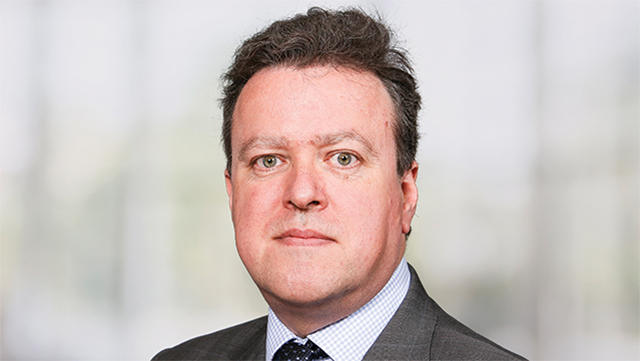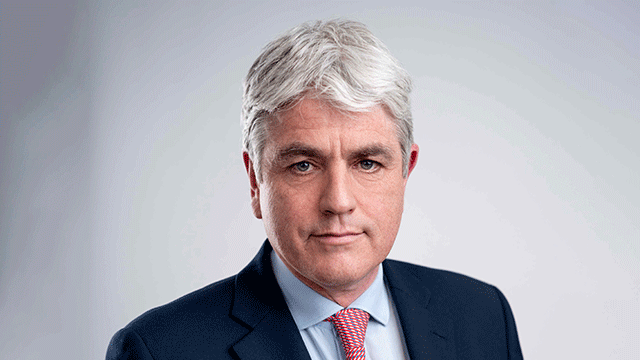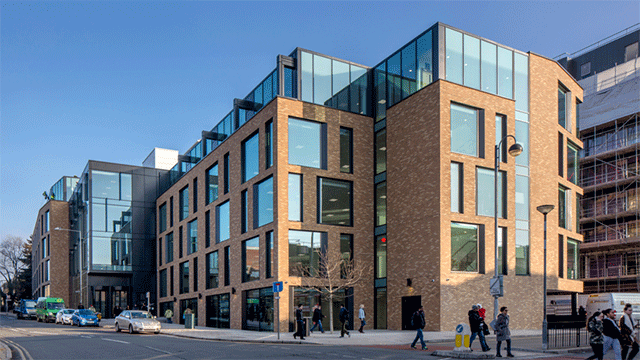“Barry is back,” beams a clearly pleased Lloyd Lee. Lee, managing director at Starwood Capital Europe is referring to Barry Sternlicht, the pugnacious and driven leader of the investment firm’s global operations – with a reputation to match (see box).
Sternlicht stepped off the company’s executive board last year. But, unable to stay away, less than a year later he is back in the driving seat. As the founder of Starwood, Sternlicht has propelled it to the forefront of the US real estate investment market and led to the creation, and spin-off, of one of America’s largest hotel businesses Starwood Hotels Resorts Worldwide. His return signals a drive to push the company globally – and it is turning its spotlight on Europe.
Starwood Capital’s might in the US is undisputed. Founded in 1991 in Greenwich, Connecticut, it launched a series of opportunity funds to hoover up distressed, yet undervalued, leisure businesses. These it turned quickly through either financial restructuring, improving the assets or by replacing management.
European operation
Now nearly 15 years on it has completed more than 300 transactions representing assets in excess of £7bn across the hotels, offices, retail, residential and even health club market. In 1998 the company made a push into Tokyo, and entered Europe in the late 1990s.
Its drive into Europe has continued at the same break-neck speed. So far, Starwood Capital Europe has completed around £380m worth of property transactions. This does not count its numerous corporate transactions which include Meridien and Tattinger, the French business synonymous with champagne. Add these in and its total enterprise value rises to £1.4bn.
Despite this, little is known of its European operation. Some blame its London office presence – a low-key affair in Mayfair with only three staff — as lacking on the PR front. Others blame its US listing which has allowed it to remain off European analyst’s radar.
But Lee appears relatively unperturbated by these accusations. “The message is that we are growing rapidly and by the end of this month we expect to double our staff.”
The company has now opened an office in Luxembourg.
“We may be very small but we are boxing well above our weight.”
Lee says that Starwood has doubled the amount spent on acquisitions this year compared with 2005, a trend he is keen to continue.
“We are going to be a long-term player in Europe,” he says.
“The European market offers true potential, both in terms of the economic cycle and the maturity of the real estate market. For example, corporate real estate ownership is dramatically higher than the US.”
The Hilton acquisition is a good example of this. Stardon – a partnership with Glasgow-based hotel management firm Chardon – bought a £111m package of Hilton’s non-core assets in March. Overnight it gained control of more than 900 hotel rooms in seven hotels; deals on the remaining four Hilton International hotels are expected to be complete in the near future.
“These were underperforming assets ready for renovation. We are going to push them so they exceed their fair share of the market,” says Lee. In the medium term, Chardon will operate the hotels under the Hilton brand.
But true to Starwood’s model in the US, it will now spend some time reflagging and repositioning the hotels, adding conference rooms and spas and selling off land.
“We want to tap into the increased demand for business travel – however, that does not mean more up-market and the three star status will remain.”
This will push profits by increasing room rates and within five years Lee expects to trade the portfolio.
The market it will be selling into then, is hard to call, admits Lee. “There are so many moving parts at the moment, high street sales are down, home values have dropped and, while that is not a realised loss, the consumer market is flagging.”
As a result Lee believes the European hotel market will move away from asset ownership and more in line with the US model. “There will be a sea change. People have started to push their value, they need to specialise and distinguish.”
This allows Lee to remain bullish about Starwood’s outlook. “It is not a question of if the European hotel market recovers but when and there are already the green shoots in London and Paris.
“If the market is kind and we get lucky – we’ll be adding true value, but I think we will do well.”
Previous experience bears out this confidence. As an opportunity fund, Starwood targets an internal rate of return of 20%. Lee admits there has been a downward pressure on this over the years but adds: “I take comfort from the fact that we have exceeded these numbers through sheer determination and hard work.”
Sheer determination and hard work are undoubtedly one factor but so is calculated risk. The Deutsche Telekom deal is a case in point. Starwood signed a sale-and-leaseback agreement with the German telecommunications firm at a time when there was a lot of nervousness over dot coms. Its credit rating had moved down several notches and Lee says there was very little financing around. “Two years later, their credit rating improved and suffice to say we turned five years worth of profit in two-and-a-half years.”
It will use this philosophy to fuel its hotel acquisitions. But finding stock in Europe’s overheated investment market may be an issue.
Despite this it will also stick to its gearing of 75% – something that has caused analysts to cast doubt over its continued ability to compete on sales (see box, above). “It is below a lot of our competitors,” says Lee, “but we are not trying to make money simply out of gearing.
“We have a few little games that we play in terms of hedging and swaps but it has got to be about a good property investment.”
Developing its own stock may be an answer but only on a very select basis, Lee says. He will also steer Starwood clear of construction playgrounds such as Dubai which Lee calls “fascinating” but diplomatically claims would spread the company’s efforts too thinly and ultimately prove to be a mistake.
Instead, Lee is keen to expand the group’s name into central Europe and cultivate a brand with a consistent offer, up to European standards. This is something that is not currently present in the market.
There will also be a focus on larger transactions. Sternlicht’s hand is at work here. “Barry often talks about larger transactions because they take roughly the same amount of work as the smaller ones and let us deploy more capital.”
To this end, hotels will remain the bedrock of Starwood Capital’s portfolio but Lee hints: “Don’t rule us out of the big corporate deals as well.”
|
The fact that “Barry is back” is a bittersweet moment for the market. After Barry Sternlicht announced last year that he would step down from Starwood Capital’s executive board, many who had been watching the company thought this signalled more tranquil times ahead. Less than a year later and he is back. Sternlicht, still just in his mid-40s, is infamous in the industry for his aggressive, hard-nosed style of business. “He’s notoriously hard to work with, and work for, but his track record is incredible,” comments one industry insider. That is thought to have led to many a casualty in Starwood’s executive line-up. Apparent clashes in the boardroom led to the resignation of Richard Nanula, who stepped down from the top job at Starwood’s operating company after just a year in the role. So too for Roger Barris who joined as Starwood’s head of European operations in May 2004 from Deutsche Bank. Six months later he too had resigned. But Sternlicht’s track record for delivering results is faultless. Lloyd Lee, managing director of Starwood Capital Europe, describes him as a unique mixture of visionary and all-round leader. “But he is very much a deals guy and we will shortly begin to see the fruits of that,” he adds. Others agree. “Starwood’s rise is amazing,” says one industry observer. “Look at what they’ve done over the past 12-13 years purely by buying hotels with distressed debt, when everyone else thought they were in the tank.” With a foot now in Europe, Sternlicht will no doubt be aggressively pushing business over here. But it will be far from a quiet ride. |
|
October 2005 Starwood Capital buys Mammoth Mountain ski area for £365m. It gains 1,000 residential units and 30,000 sq ft of commercial space July 2005 Tattinger is sold to Starwood Capital for ¤1.2bn. It gains control of 14 luxury hotels including one dear to the property industry’s heart: the Martinez in Cannes. The deal includes Tattinger’s 44% share in affiliate Société du Louvre. Acquires the US gaming assets of Wembley as part of the BLB consortium March 2005 Gains control of £111m Hilton portfolio in a package of seven hotels January 2005 Invests in Westin Hotel Japan. With Morgan Stanley it pays ¥50bn in the country’s largest single hotel transaction October 2004 Starwood Real Estate Securities launched May 2004 Roger Barris of Deutsche Bank joins as new head of European operations. He leaves six months later after apparent clashes with Barry Sternlicht February 2003 Pays $93m for West Ridings House in Leeds, the 150, 000 sq ft mixed-use building is the first transaction of a partnership with ING-REIM April 1999 Closes on fifth fund worth $516m. It is established to forge joint ventures in Asia and Europe March 1998 Starwood Mezzanine investors put into Starwood controlled REIT called Starwood Financial Trust. After merging with Trinet Corporate Reality Trust it is renamed Star Financial July 1998 Assembles a $2.3bn portfolio of investment comprised 35% equity to 65% debt. Around 60% of net investments is put into offices 1998 Hotels division becomes Starwood Hotels & Resorts. Sternlicht chooses Walt Disney executive and Harvard classmate Richard Nanula to lead Starwood’s operating company February 1997 Closes its fourth fund with total proceeds of $830m 1995 Starwood Capital joined Goldman Sachs and Nomura Securities to buy Westin Hotel (renamed Westin Hotels & Resorts) from Japanese construction firm Aoki. Along with the acquisition of ITT Corporation (which includes the Caesars brand) it forms the largest hotel company in the world operating 700 hotels in 80 countries November 1994 Moves into mezzanine market closing its third fund with $220m February 1994 It recapitalises and reorganises the Starwood Lodging Trust November 1993 Closes on second fund with commitments for $102m. Over 39 acquisitions it looks for opportunities from distressed sellers, over leveraged and mismanaged assets August 1993 It contributes the majority of its multi-family portfolio to Equity Residential Properties Trust 1991-1993 Launches first opportunity fund Starwood Opportunity funds I and IA. With $52m, it buys a portfolio of 6,400 multifamily properties 1991 Barry Sternlicht starts Starwood Capital Group |
|
With its bursting piggybank it’s hard to believe that so little is known about Starwood Capital’s European operation. As a US based and listed company, it has remained in the periphery of most European analysts’ radar. And as a company that doubled its investment in Europe this year and plans to continue that aggressive growth next year, all the major consultancies have worked with Starwood — but as a result remain reticent to talk openly about it. When the message does come through it is generally one of praise. “I have a lot of admiration for them, they are very successful and very well run,” says Mike McNamara, partner at Ernst & Young’s real estate finance team. “They certainly demonstrated an appetite for a greater presence in Europe and they’ve put the wheels in motion to make it happen.” “Do I think they’ll be successful? Well, any business that Barry runs will be successful. Will it be easy? Certainly not!” The company has remained in analysts’ good books with modest levels of borrowing. But with a prudent gearing of 75% is it working its money hard enough? “The question is whether they stay within that, with each deal,” says one industry commentator, “My guess is some they will gear more, some less. However, they need to finance to get both the deals and the returns. If they geared 75% on every single one then clearly they are not going to win a lot.” The purchase of Hilton’s non-performing assets and the price paid did little to surprise the industry. Many now expect it to apply its US business model directly to the UK investing the time Hilton did not want to. By buying provincial hotels, which have remained steady even in the post 9/11 era, Starwood will also sidestep much of the malaise in the wider hotel industry. Simon Hudspeth, director at Christie & Co, believes the deal is astute giving them a significant portfolio of properties. “It definitely gets them right into the UK hotel market.” Acquiring a major stake in Société du Louvre reinforces this strategy across Europe. “It gives them a really significant hotel in Paris as well as somée very good budget brands. “Now their key objective will be to drive the development of budget chains in Europe.” Hudspeth predicts Starwood will continue to work with smaller operating partners, as demonstrated by the Hilton deal where it partnered with Chardon. “They are highly respected but not a big name brand. This is indicative of the opportunity for investment purchasers in that they don’t have to be management,” he says. Finding those deals will be more challenging. Starwood clearly has to make some chunky investments at price points delivering the promised 20% growth. Like its competitors, analysts believe Starwood will look for quirky deals such as companies in need of a management change, or by taking public companies private. But it is backing Starwood to win more than its fair share of deals. “I think they will be more aggressive than their competitors and will look for opportunities which involve taking on headcount – that is something opportunity funds don’t like but I think they will be willing to consider it.” Ernst & Young’s McNamara agrees: “In the past they’ve demonstrated the willingness to buy operating business and demonstrated the acumen to manage them well.” |










